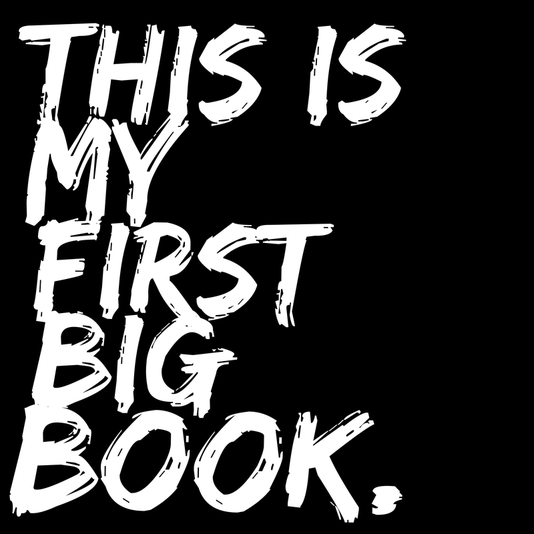|
My hardest work of the day is when my kids have settled in with their books. The lights are down low, but not too low. The windows are open to let in the breeze. It takes us a few moments to get into the zone. Once the crinkling of headphones bags, the logging-in on Audible, and the shifting of chairs comes to a halt, I get to work.
Conferences look different based on what readers need at the time. Some days I kid watch from a couple of different spots in the room and fill out an engagement inventory. On other days, you will see four or five kids huddled around my kidney table reading quietly as I check in with each reader. Most of the time, I will be working one on one with my readers. The goal is simple: readers spend workshop time reading, and I spend workshop time helping them with their reading. It is my job to help readers grow. To make them feel like reader is a name they are worthy of. They are worthy of the name, and sometimes it takes many conversations throughout the year to help them try that on that name, to help them own it. How can so many teachers continue to ask me how I know that my kids are reading? How can so many teachers continue to require logged reading, when the answer is as simple as the goal? Give kids time to read, access to books and then work to help them as they grow and try on the name of reader. Be there for the conversations, because I promise they are the best part. The conversations are taken to a new level when you are living a readerly life, yourself. Talking with kids about reading is the heart of workshop. Yes, I will work with readers on goals to help them grow. Maybe they are working to recognize pieces of plot in fiction to deepen their understanding. Maybe they are working on visualizing a mental movie as they read. Those things are all an important part of my work, but my favorite thing about these conversations is the heart that each individual reader brings to them. Last week, I met with a fourth grader who was rereading Kazu Kibuishi's Amulet series. First off, how advanced is that decision to reread a series? I started the conference by telling this reader that I was beyond impressed with this move. Then I asked him why? I like to keep things open-ended because let's face it, whoever is doing most of the talking, is doing most of the working. His response helped reaffirm why these conversations are so important. He said "The first time I read this series, I read with my heart. This time, I'm going to let my brain do the work." Profound. A fourth grade reader actually said this to me. Please tell me, where would he have added this response on a standardized test? On a reading log? On a multiple choice quiz? In a fat packet with literal comprehension questions for each book? There is no place for heart work on these measures. The place for heart work is during conferences. Conversations between two readers will tell you everything you need to know about a reader, and more. That day, I also met with about four other readers in his class. Keeping my check-ins at about five a day gives me the chance to meet with my kids once a week, at least. As I sat down next to another reader, I noticed he had a copy of Anne Ursu's Breadcrumbs, a book I had book talked just a few days prior. A book that I did not imagine seeing in the hands of this reader. I picked up Breadcrumbs and said "whoa, nice." He then said "Yeah, I am already 80 pages in and I really like it so far." I followed up with "80 pages? That's past the point of no return, what made you choose this one?" He told me that when he heard me book talk Breadcrumbs, it reminded him of Elsa from Frozen. He said he knew he wanted to give it a try because he liked Elsa and he hadn't spent any time reading fairy tales during the school year (that week we had completed a mini lesson on gaps in our reading lives). Then he looked over at me and said "This is my first big book." Being the outstanding actress that I am (I really wanted to cry), I simply said "wow, how does that feel?" He fidgeted with the book in his fourth grade hands and said "It feels really good." This. This is what I am talking about. That reader had no limits from his teacher. That reader was not afraid to tell his teacher that he likes Elsa from Frozen. He was not afraid to try something new, step out of the box because of the safe community in our classroom. The community is a pivotal piece, because if you don't have it, conversations might not sound like this. Conversations connect readers. Connected readers make up a community. Communities of readers can change the world. One heart at a time.
2 Comments
Jamie
5/4/2017 04:05:07 am
I read the post about you on Nerdy Book Club and would like to follow your blog. I am having a hard time finding how to do that. Could you help please? Thanks!
Reply
5/7/2017 07:34:06 am
I love hearing this about students! So important to have access to that kind of time.
Reply
Your comment will be posted after it is approved.
Leave a Reply. |

 RSS Feed
RSS Feed
